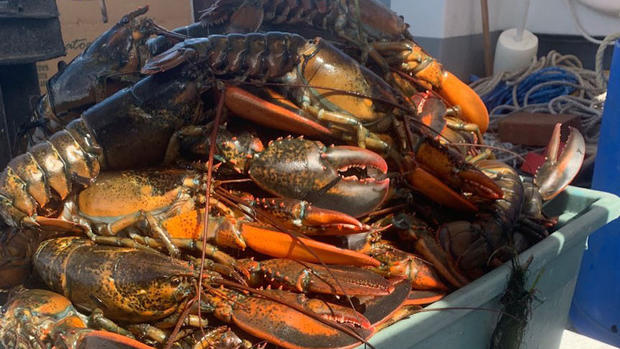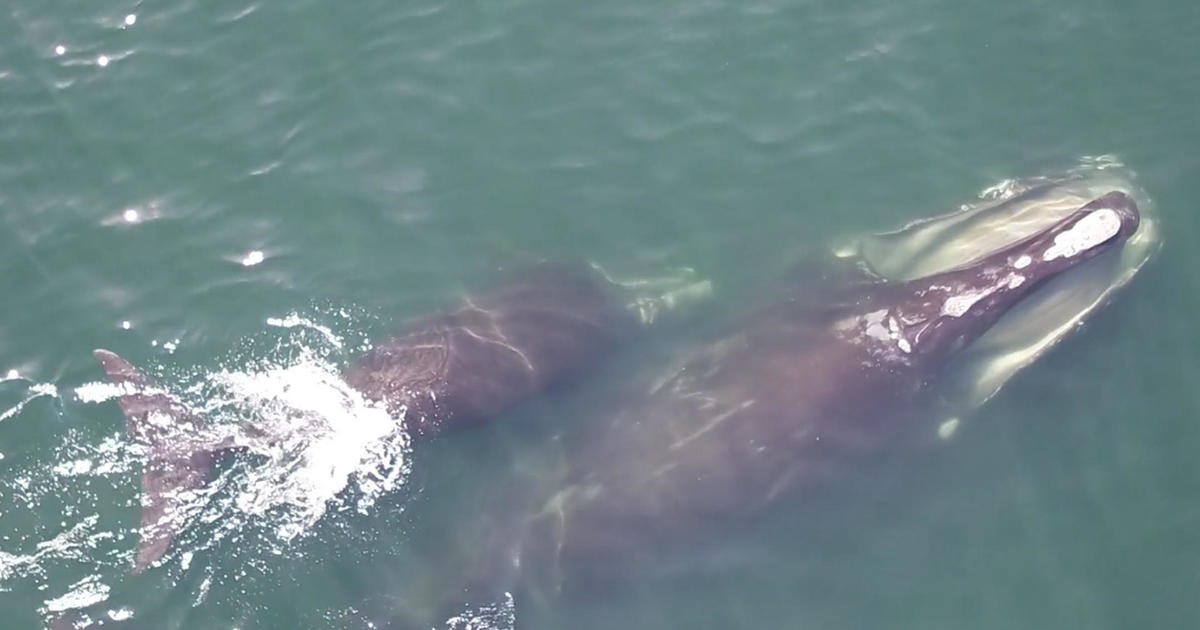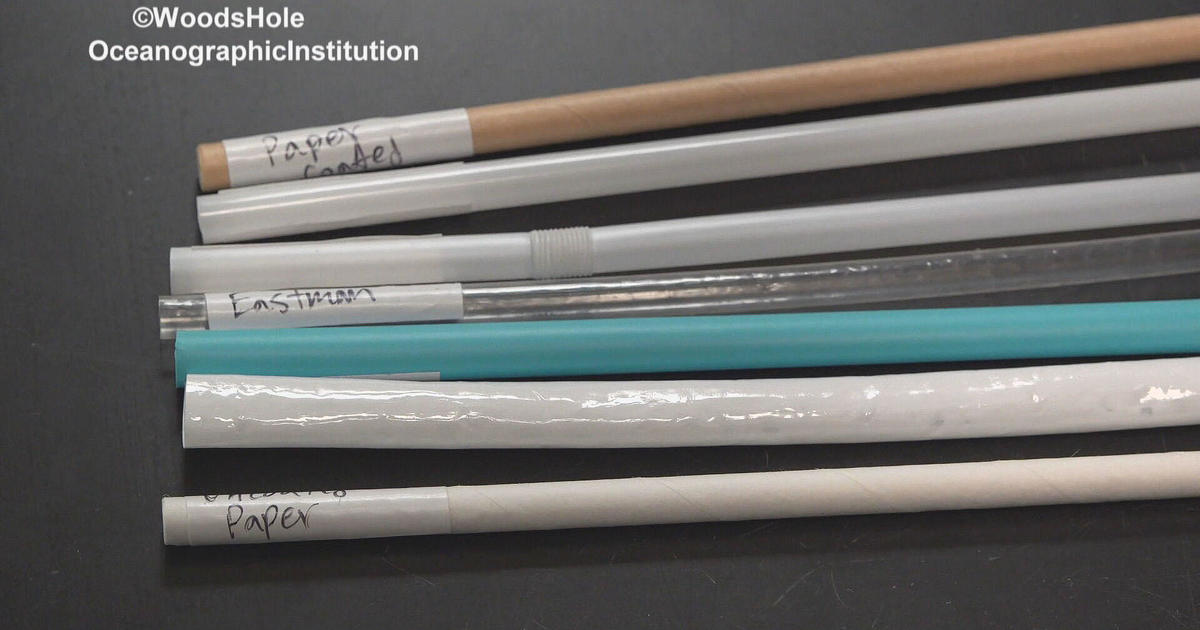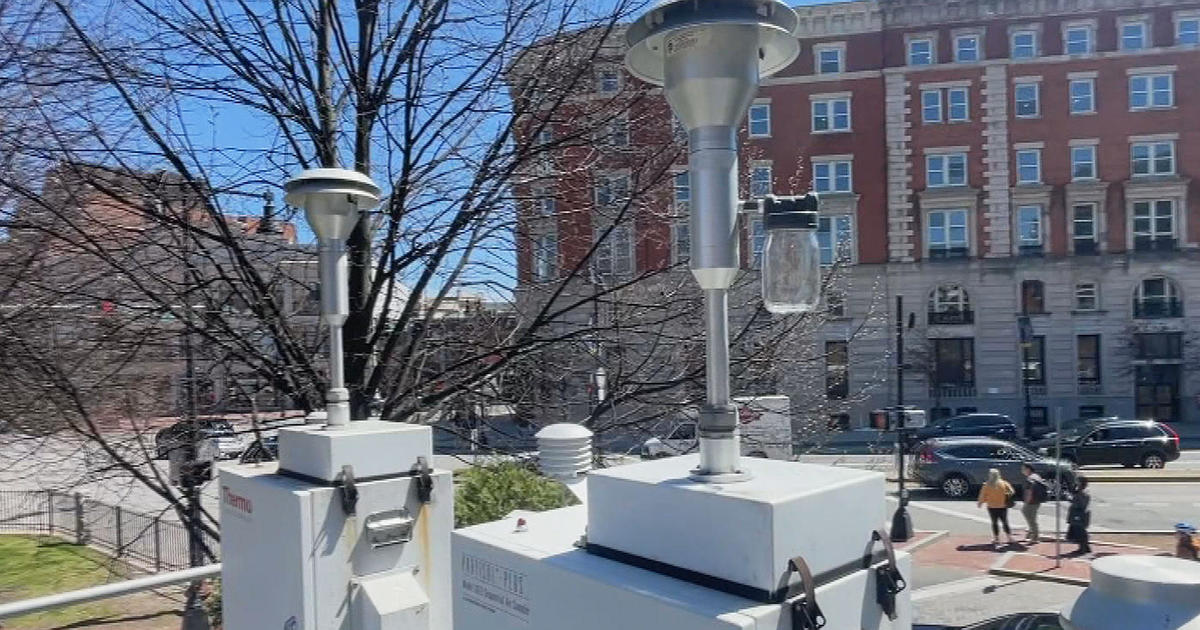Mysterious 'Blob' Of Water With Low Oxygen Levels Threatens Lobsters In Cape Cod Bay
CAPE COD BAY (CBS) -- Lobsterman Bill Chaprales remembers the day well. The day in 2019 that he began pulling up cages filled with dead lobster.
Chaprales has been on the water since 1970, catching all kinds of creatures on his boat. Up until then, he'd never seen anything like this -- cage after cage of dead lobsters.
Calls were quickly placed to the Massachusetts Department of Marine Fisheries and the Woods Hole Oceanographic Institute.
"We've got a problem here," Chaprales recalls saying.
The dead lobsters were put on ice and sent to laboratories for examination.
"When we got the call up we pretty much dropped what we were doing and sort of scrambled to try to figure out what in the world was going on," says Dr. Tracy Pugh of the Department of Marine Fisheries.
Dr. Pugh sent researchers to get water quality measurements. Within a few days of the problem first arising, the cause became evident - it's a very thin layer of water with very low oxygen levels sitting along the floor of Cape Cod Bay and nicknamed "the blob."
Every animal that breathes under water relies on dissolved oxygen. Normally, lobsters can sense these lower levels of oxygen and simply avoid them by swimming away. If they are caught in pots with no escape avenue, they essentially suffocate.
So after the cause of the deaths was discovered, the conversation shifted to why it's happening.
Like any body of water, Cape Cod Bay gets quite warm at the surface during the summer. This warm layer of water sits on top a very cold layer of water at the bottom of the bay. The difference in temperatures between these layers is known as stratification.
A "highly stratified" Cape Cod Bay is likely the cause of low oxygen levels, Dr. Malcolm Scully said. Dr. Scully, along with his researcher partner Dr. Rocky Geyer, are physical oceanographers and part of the Woods Hole Oceanographic Institute team examining this dead lobster issue.
"The environment in Cape Cod Bay has really changed a lot over the last couple of decades," Dr. Scully told WBZ-TV.
Cape Cod Bay is not immune to the global water temperature rises that have been recorded. Dr. Scully also theorizes that more moderate wind events from the north than in previous years may make this problem worse.
In order to effectively track this "blob", Lowell Instruments of Falmouth specially designed an instrument to fit inside a lobster cage. It monitors water temperature and dissolved oxygen at the depths where the pots rest.
At the moment, five of these instruments and data loggers have been distributed to the lobster fleet to get a good spatial representation or cross-section of the bay.
"We're not going to put giant bubblers in the bottom of Cape Cod Bay and mix this away," says Dr. Geyer. "I don't think there is an engineering solution. But I think if you understand it and you can predict it, then you're in a much better position."





